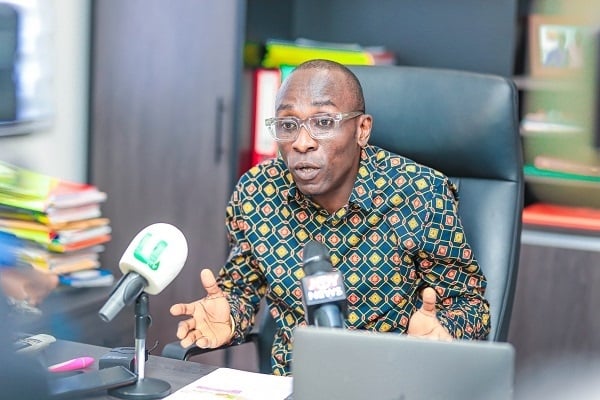The New Patriotic Party (NPP) finds itself grappling with internal dissent and calls for accountability stemming from the conduct of its Deputy Director of Communications, Ernest Owusu Bempah. Numerous petitions have been lodged against Mr. Bempah by party members, alleging actions and statements that have sparked controversy and raised concerns about his suitability for the position. These petitions have now escalated to the highest decision-making body within the NPP, the National Council, which will review the allegations and determine the appropriate course of action. The gravity of the situation is underscored by the party’s official statement, expressing “grave concern” and acknowledging the need for a thorough and impartial examination of the complaints. This internal conflict presents a challenge to the NPP’s image and its efforts to maintain unity and discipline within its ranks.
At the heart of the controversy lie the specific actions and statements attributed to Mr. Bempah that have triggered the wave of petitions. While the exact nature of these allegations remains undisclosed in the official statement, it is clear that they have caused significant unease among party members. The sheer volume of complaints suggests a widespread perception that Mr. Bempah’s conduct has deviated from acceptable standards or has negatively impacted the party’s image. The nature of these complaints will be central to the National Council’s deliberations and its ultimate decision regarding Mr. Bempah’s future within the party. Understanding the specific grounds for the petitions is crucial to assessing the validity of the concerns raised and the potential consequences for the NPP.
The NPP’s internal structure and decision-making processes play a significant role in how this matter is being handled. Mr. Bempah’s appointment as Deputy Director of Communications followed a well-defined path, originating with a recommendation from the National Executive Committee (NEC) and culminating in endorsement by the National Council. This hierarchical structure necessitates that any action taken regarding his position must follow a similar process. The referral of the petitions to the National Council, the same body that initially endorsed his appointment, underscores the party’s commitment to adhering to established protocols and ensuring a fair and transparent review of the allegations. This methodical approach is crucial for maintaining internal stability and demonstrating a commitment to due process.
The NPP’s statement emphasizes its commitment to “upholding discipline, safeguarding its values, and ensuring that all matters are handled with fairness and transparency.” This declaration serves as a public reassurance that the party takes these allegations seriously and is determined to address them in a manner consistent with its core principles. The invocation of these values highlights the importance the NPP places on maintaining internal order and accountability. It also suggests an awareness of the potential damage to the party’s reputation if these concerns are not handled effectively. The emphasis on fairness and transparency aims to build trust and demonstrate that the NPP is committed to a just and equitable process for all involved.
This internal conflict within the NPP has broader implications for the party’s political standing. Any perception of internal discord or lack of accountability can undermine public confidence and potentially impact the party’s electoral prospects. Moreover, the controversy surrounding Mr. Bempah’s conduct could distract from the party’s broader political agenda and create an unwelcome focus on internal disputes. The NPP will be keen to resolve this matter swiftly and decisively to minimize any negative fallout. The outcome of the National Council’s review will likely send a strong signal about the party’s commitment to upholding its values and maintaining internal discipline.
The National Council now faces a critical decision. It must thoroughly examine the petitions against Mr. Bempah, weigh the evidence presented, and determine whether his actions warrant disciplinary action or removal from his position. This process will require careful consideration of the party’s constitution, its internal rules and regulations, and the principles of natural justice. The outcome of the National Council’s deliberation will not only determine Mr. Bempah’s fate within the NPP but will also send a powerful message about the party’s commitment to accountability and its ability to manage internal conflicts effectively. The decision will also likely have a significant impact on the perception of the NPP within the broader political landscape.














